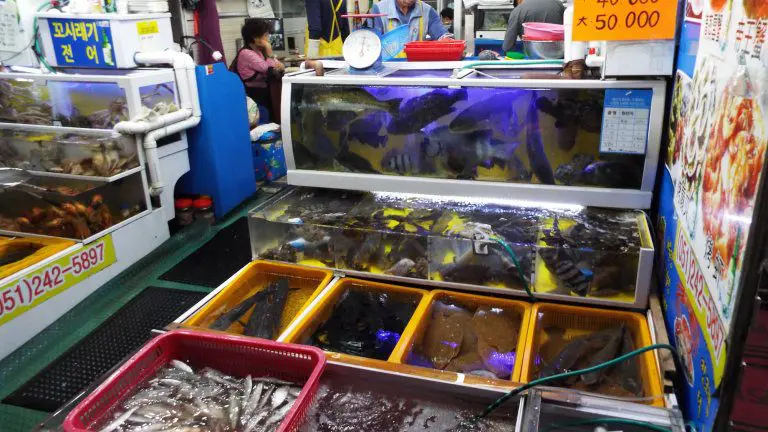If you go to South Korea with the attitude that you go to the decor for an ancient tea ceremony with the appropriate pagodas, kimonos, silence and blossoming cherries, you will be mistaken. If you expect K-pop and Squid game reality – you will find the right place.
In fact, the two – tradition and hyperspeed urban commerce, coexist in the country, just the former is not visible to the naked eye on the surface. After a first and second look at Seoul and its people, the situation seems brutal: Koreans work as slaves and consume to the point of fainting to compensate.
Shopping malls and streets are crowded, as are restaurants, and eating and drinking is noisy and dedicated. “It’s not work here, it’s slavery,” explains the guide, Mr. Choi.
Koreans work an average of about 2,000 hours a year, ranking third in the world for the longest working hours. In the automotive industry, as well as in restaurants and malls, it is normal to work almost non-stop. The official working week can be 40 hours, but most employers are not ashamed to break it with overtime. The culture of the night life also intervenes here, when everyone goes out to spend and “rest”.
Right behind the shiny fittings of modern buildings and wide boulevards on the front line, 2 meters beyond the facade, however, are crowded houses and narrow streets, where Koreans hide from cameras on the shiny part to smoke. They look around like thieves, cuddling a cigarette in a handful.
This is the second shock, after the hustle and bustle of the shopping streets. It is not news that in South Korea smoking is also banned outdoors and can only be lit in designated indoor smoking areas, which are virtually non-existent in cities.
And how are smokers encouraged to follow it – if you take a picture of an offender and send the picture to the health authorities, you will receive a percentage of the fine that the unfortunate person will pay.
Something completely unthinkable in our latitudes. In this part of the world, what we in Europe have considered sacred personal space and human rights has almost no ground. It is perfectly normal to be pushed into the streets and shops without apology. Older people may shout at you if they decide you don’t show the necessary respect for them – respect for the elderly is fundamental to Korean culture.
On the flip side, they can be brutally outspoken, and instead of blurring, they would hypocritically tell you in the face that you are ugly or stupid.
To foreigners, especially from Europe and America, Koreans may seem rude, and different standards of individual rights may be outdated and even inhumane. However, this is the Western interpretation. Imposing a stereotype on a totally different culture can lead to an even more difficult understanding and hasty rejection.
And the goal is to get to know South Korea, not to judge it.
The next controversial and inevitable thing in South Korea is food. Either you will fall in love with it for life, or you will spend the hungriest times of your life while you are there.
The food in South Korea is addictively spicy and spicy, and in Asian terms, which means that the squash there has nothing to do with what we consider high on the spicy scale in Europe. Spicy is eaten from breakfast, and if this is not your food – the alternatives are quite unappetizing, such as unsalted boiled white rice and bland soup with seaweed, which – strangely – Koreans consider an indispensable remedy for a hangover.
Korean cuisine has long fascinated the world, and it is no coincidence that some Korean words have recently been added to the Oxford Dictionary, including bulgogi and kimbap. Unfortunately, in Bulgaria is known mainly fermented spicy cabbage kim-chi, which is a miniature part of Korean cuisine.
In Korea, the base – like oil and vinegar – is the spicy gochujang sauce, which is added to almost everything. It is addictive and improves the taste of even sashimi.
Bulgogi is not just a Korean barbecue, but also a typical way of eating and serving. These are bites – usually of beef, thinly sliced and richly soaked in a spicy marinade. But in the restaurants the customers cook them themselves. Most restaurants either have built-in gas hobs and grills in the middle of the tables, or they bring them to you and you roast the meat yourself.







